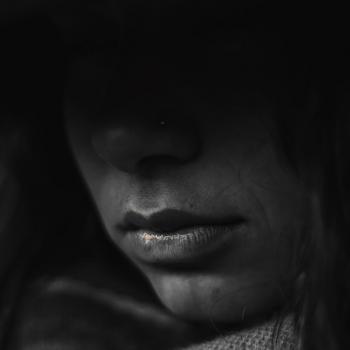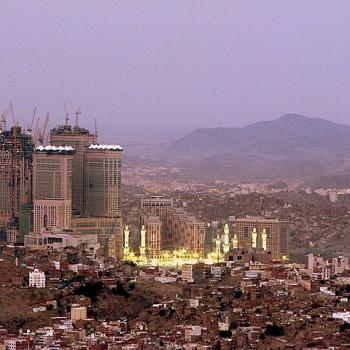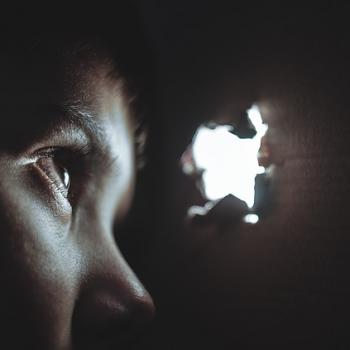This is Day 26 of the 2018 #30Days30Writers #Ramadan series.
(TRIGGER WARNING – sexual abuse, child abuse)
I sat on my bed, my hand cupped over my mouth trying to stifle my sobbing; hush it up just a bit so that my kids across the hall wouldn’t hear me crying. I stopped scrolling through my Facebook feed and sat there as my nerves increasingly frayed. The comments defending alleged sexual abusers — the name calling and victim blaming — tore at my heart.
When I was 17, I was sexually assaulted. I didn’t go to the police, I went to school the next day. I found myself in the bathroom stall crying, confused and in disbelief. Why did this happen? This didn’t just happen! I said repeatedly to myself, trying to convince myself as I sat alone in that stall. Another student walked in and heard me crying.
“Are you ok?” she asked through the door. I didn’t say anything. “Sakeena?” Oh no! She recognized my shoes underneath the stall. It was a friend, and she knew it was me! Still, I didn’t answer hoping she would just go away.
She did. I washed my face and walked down the hall after the bell only to be stopped by my sister, who was a year younger than me. “Someone told me you were in the bathroom crying. What’s going on?” she asked me.
I sighed and said, “Let’s go.” We went to our lockers, got our things and walked home. I told her everything. She cried and promised that she wouldn’t say anything. And for a time, it was our secret.
Eventually everything unfolded — as secrets tend to do — and things took a turn that I never imagined. A beloved adult relative doubted me when we talked about my sexual assault. “Maybe you wanted something to happen, and then when things started happening to you, you didn’t want it anymore? Does that sound like how it went?” said I was numb. People were angry with me for saying something they knew didn’t happen. For every action that I took or didn’t take, for not being able to prevent it — everything was my fault.
The blame and the pain felt crippling. I wanted to rip the stars out of the sky and turn the world as bleak and gloomy as I felt. I wanted to die. I wanted my life back before that awful moment. And, I wanted to return to my normal, but I couldn’t. That was 20 years ago. My life progressed — I got married, had three children and most of the time, I’m ok.
But as celebrities and high-profile figures continue to be accused of sexual assault, it’s become difficult to deal with the painful feelings that keep coming up. Some of the exact same “one-liners” that people use to defend celebrities were said to me in the aftermath of my assault.
“He didn’t need to assault anybody, he is/has _____.”
I read those vile words and I’m 17 again, alone in that bathroom stall crying. I’m disappointed in the heartless comments publicly blaming sexual assault victims from my friends and family. It’s troubling that we still have not prioritized sexual abuse prevention and survivor support in our country and that resources, funding and “town halls” have not been made available to address a problem affecting millions of Americans.
It’s now Ramadan 2018, the year of #MeToo, #TimesUp and #MosqueToo. Will it be #RamadanToo? Will I be able to escape the headlines, the social media comment threads where people tore each other apart and victim-blamed ad nauseum? Will I be able to escape my own jarring memories of sexual assault?
During Ramadan, yet another high-profile figure in the U.S. has been accused of sexual misconduct. Social media is thrown into a frenzy and people quickly and carelessly post their thoughts for the world to see:
“Why didn’t she come forward when it first happened?”
“Yeah right, she probably assaulted him.”
“He doesn’t have to assault anybody!”
The same lines are recycled for each new name added to the list of accused. Fans, supporters, and complete strangers step forward to defend men who they don’t know and have never met. Maybe he was the lead character on their favorite show, or he was the hero in that one movie — you know the name.
These men have led careers and lives that against the strongest accusations, still protect them.
“The tide is turning!”
“Times up!”
You heard these chants on red carpets and at the biggest awards shows this year. We saw these slogans adorning buttons and bumper stickers of sexual assault allies.
I’d like to believe the tide is turning. I want to smile and say, “times up,” and feel comforted. But I don’t. Sexual assault is not a new problem or epidemic. Yet in 2018, the tide is somehow now turning. Women are now finally being believed. Perpetrators are facing real consequences and charges that has lead to a national conversation we should have had long ago.
This is not some feminist attack against innocent men or the powers that be trying to keep minority leaders from being successful. The person that assaulted me wasn’t famous, and he wasn’t a leader that was trying to uplift a minority community. But, people flocked to his defense anyway. Rape culture is real and sexual violence (especially against women) has been normalized and excused by popular culture.
And, this is not an issue that affects just women, though they are the primary victims. I have friends and loved ones (male and female) both Muslim and non-Muslim, who were sexually assaulted as children. Raped by babysitters, neighbors and relatives. Why didn’t they tell right away you ask? They were six-years-old. They went to school the next day — first grade. Or, they were 12 and grabbed alcohol from their parent’s liquor cabinet to dull the pain.
These childhood sexual assault victims grew up and during that time put needles into their arms, contemplated suicide and broke covenants with God to treat their bodies as temples. Instead, they smoked, snorted and swallowed all forms of poisons and drugs to escape a pain too big for little bodies. These children are my friends. My family members. And, they have lived through literal nightmares that will make you question humanity.
Ramadan is the month of mercy. Abu Musa Al-Ash`ari (may Allah be pleased with him) narrated that the Prophet (PBUH) said:
“You can never be (true) believers until you show mercy to one another.“
Be merciful. Speak with kindness and be aware that your words can hurt. Sexual assault victims deal with their trauma year-round, including in Ramadan. Nadiah Mohajir is the co-founder and director of HEART Women and Girls, a nonprofit that promotes the awareness of sexual health and sexual violence in Muslim communities. Mohajir had this to say about Muslims dealing with sexual trauma in Ramadan:
“The way trauma manifests in people differs. So many things can impact one’s ability to deal with trauma: whether or not they have family and community support, whether or not they are believed, whether or not they are seeking professional help. Each survivor’s journey is unique and different. Some may find comfort in the added blessings of this month, while others might find the month to be triggering or suffocating, especially if they have to more frequently interact with those that tried to silence them and their experience.”
I understand that this is a difficult conversation for many of us to have. But, it’s essential that we do. The most vulnerable in our communities deserve to be protected and as Muslims it is our duty to speak out against injustice and take action to stop it.
Support organizations who are doing the hard work every day to make our community safer for all — groups like HEART Women and Girls and F.A.C.E. Facing Abuse in Community Environments. FACE was formed in Ramadan 2017 by concerned Muslims who wanted to address the leadership accountability gap within communities. They assist victims in reporting abuse and work with leaders to help them better manage their roles.
Some have suggested that we are in the midst of a “sexual assault reckoning” while others feel this is some feminist witch hunt and ask, “Are any men safe (from accusations)?” But consider this: 99 percent of perpetrators of sexual violence will walk free. Out of every 1,000 rapes, only six rapists will be incarcerated. Six.
So, if your concern is that men are being unfairly charged and hauled off to jail, maybe these statistics will give you comfort — even if they comfort no one else.














